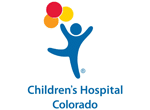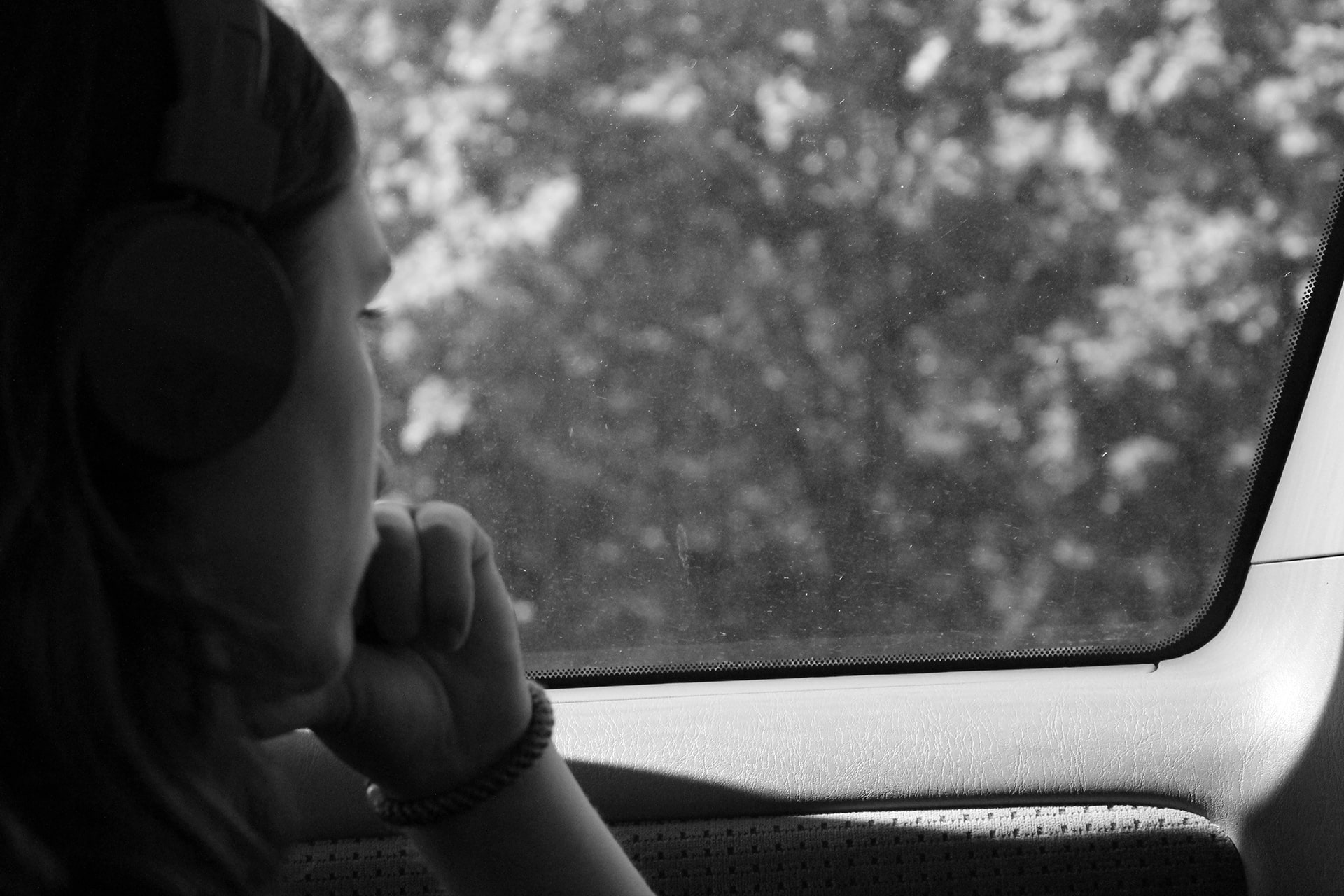Anxiety is a normal part of life and can sometimes be helpful, depending on the situation, but it typically has a negative connotation attached to it. Our partners at Children's Hospital Colorado have answers to the most common questions about anxiety disorders as well as resources for anyone who needs them.
What is anxiety?
Anxiety is our body’s reaction to perceived danger or important events. It is like an internal alarm system that alerts us to danger and helps our body prepare to deal with it.
We all experience anxiety from time to time, and children are likely to experience certain fears at particular stages of their lives, such as fears of separating from parents in infancy or self-consciousness during the teenage years. This is a normal part of growing up. But sometimes, fears and worrying can reach a point where they start to cause a problem. For example, your child may become upset or distressed, stop doing things that he or she enjoys, and/or be affected academically, socially or in athletic pursuits.
When anxiety begins to negatively affect your child’s life, parents can turn to the Pediatric Mental Health Institute at Children’s Hospital Colorado, Here, we diagnose and treat children and teenagers with a full range of anxiety disorders, including but not limited to generalized anxiety disorder (GAD), specific phobia, social anxiety disorder, separation anxiety disorder, selective mutism, and panic disorder, as well as obsessive-compulsive (OCD) and related disorders.
What causes anxiety disorders?
No one fully knows what causes anxiety disorders, but research has identified a number of factors that we think play a role. These include genetics, environmental stressors such as the death of a loved one, being bullied at school, difficulties with academics, getting sick, parental separation, family violence, and specific incidents (e.g., being in a car accident, being burgled, and being bitten or stung), as well as parents’ reactions to children’s anxiety and the ways those around the child cope with stressful situations.
Who gets an anxiety disorder?
Anxiety disorders are the most common type of psychological problem found in children and adolescents, affecting one in 10 youth at high enough levels to warrant a diagnosis. Anxiety disorders run in families, and children with anxiety are likely to have siblings or parents who also suffer from excessive anxiety.
Helpful resources for anxiety in kids and teens:
For more information about childhood and adolescent anxiety disorders and OCD, we recommend the following resources:
Websites:
- Anxiety and Depression Association of America
- Anxiety BC
- The Child Anxiety Network
- Selective Mutism Association
Books:
What are the signs and symptoms of anxiety?
When children experience anxiety, they are likely to notice it affecting them in a number of ways:
- First, anxious children tend to have thoughts about some type of danger or threat; for example, they may worry that they’ll be hurt, that someone close to them will be hurt, or that they’ll be laughed at.
- Second, when they are worried, children who are anxious may complain of stomachaches, headaches, vomiting, tiredness and other physical symptoms.
- Third, when children are anxious, they may fidget, pace, cry, cling or shake. Importantly, anxious children frequently try to avoid situations that they fear (e.g., refusing to sleep in the dark; staying by parents’ sides all night at a party so as not to speak to peers) and, when they are pressured to face anxiety-provoking situations, anxious children may have tantrums.
The amount of anxiety will vary from child to child. Some children are afraid of one or two things, such as heights, dogs or needles. Other children may be worried about many areas of their lives and may seem generally nervous or sensitive. For example, a child may worry about a new situation, be scared to meet or interact with other children, and worry about separating from his or her parents.
Some children may have particular thoughts or themes that play on their mind again and again, such as dirt and germs, keeping order and neatness, or saving old items. They may repeat certain actions over and over, often in a superstitious or ritualistic pattern, such as washing their hands, turning the lights on and off, or checking that something is turned off.
What are panic attacks?
Some anxious children may have panic attacks, which involve a sudden rush of fear together with a number of physical feelings including a racing heart, sweating and dizziness. During panic attacks, children may think that they are dying or that something terrible is happening to them.
It is not uncommon for children to have two or more anxiety disorders, and they may struggle with additional conditions such as tics, depression or disruptive behavior disorders.
What tests are used to diagnose anxiety?
At Children’s Hospital Colorado, anxiety is diagnosed by completing a clinical interview with a specially trained mental health professional.
While there are no lab tests or imaging procedures to diagnose anxiety, our caregivers use advanced, kid-friendly methods (like rating scales) to make a diagnosis.
When diagnosing this condition, we focus on the symptoms of anxiety and how they impact your child’s functioning.
Why choose Children’s Colorado for anxiety disorders?
Our Pediatric Mental Health Institute team is highly qualified and knowledgeable about anxiety and obsessive compulsive disorders in children. Our psychiatrists have additional specialized training with children and are board-certified in child and adolescent psychiatry. Our clinical psychologists and behavioral health clinicians typically have specialized degrees and/or additional training in pediatrics as well.
Reflected in our affiliation with University of Colorado School of Medicine, we strive to provide diagnostic evaluations that are grounded in the most up-to-date clinical research findings. Moreover, our waiting room setup and staff are sensitive to the needs of children who may be nervous or scared, and we have toys, art materials, snacks and other soothing items to help put kids at ease.
What to expect during an evaluation for an anxiety disorder
An evaluation for anxiety, or any other emotional or behavioral concern, requires time to get to know the patient and their symptoms, and to build an individualized treatment plan.
The first visit takes about an hour and a half, with ongoing evaluation and refining of the treatment plan as treatment progresses. Your first visit will likely include forms to fill out, rating scales and a detailed history gathering. Sometimes, we request additional records or school reports.
How do providers at Children’s Hospital Colorado diagnose anxiety?
Our diagnosis is guided by the Diagnostic and Statistical Manual of Mental Disorders (DSM) and by the clinical expertise of our providers. Parents, children, therapists and psychiatrists typically collaborate and discuss diagnosis to ensure accuracy, which is crucial to direct appropriate treatment.
How are anxiety disorders treated?
At Children’s Hospital Colorado, we treat anxiety disorders through a combined approach of psychotherapy and medication management. This means a child often sees a psychiatrist for medication evaluation and treatment planning, and a therapist for individual, family, and/or group therapy.
What to expect from therapy
The specific type of therapy often used for anxiety disorders is cognitive behavioral therapy (CBT). In CBT, children learn about their body’s response to anxiety and how to manage this with relaxation; they are taught to identify anxious thoughts and replace them with coping-focused thinking; then they practice facing their fears in a gradual and supported manner.
This type of therapy is often time-limited with the goal of empowering the child and family to manage anxiety on their own, by teaching skills that will be useful for the rest of their lives.
What to expect from medication
Medication options typically include a selective serotonin reuptake inhibitor (SSRI) or similar medication that has been shown to significantly improve anxiety symptoms. This decision would be made based on each child’s needs, and with a full discussion of the risks, side effects, and alternatives.
Why choose Children’s Hospital Colorado for your child’s anxiety?
At Children’s Colorado, our clinicians are trained to provide the highest standard of evidence-based treatments for anxiety disorders. This includes medication management and CBT through both individual and group therapy formats – all specifically geared toward children.
Our approach is family-centered, which means that we think it is very important to work with children and their families to ensure sustainable improvement in symptoms and functioning. If a child needs a higher level of care, we have intensive outpatient and day treatment programs available. Additionally, because we are a part of Children’s Colorado, we collaborate with other medical providers whenever needed for children with complex medical conditions or developmental delays.

Photo by Abigail Faith on Unsplash
